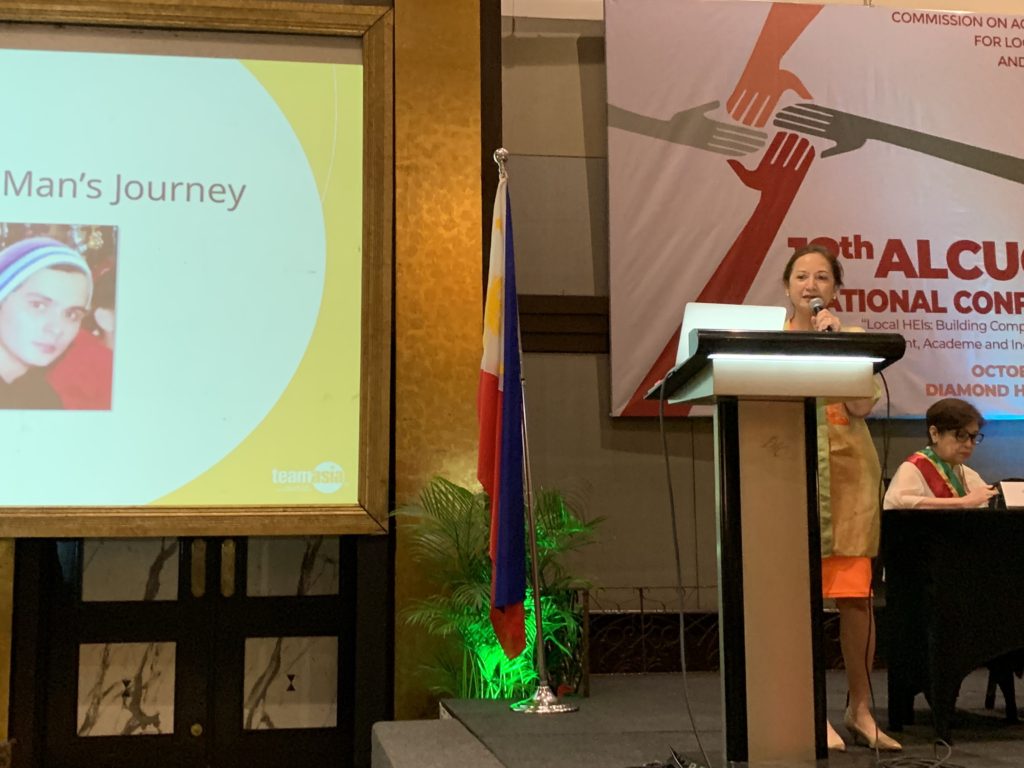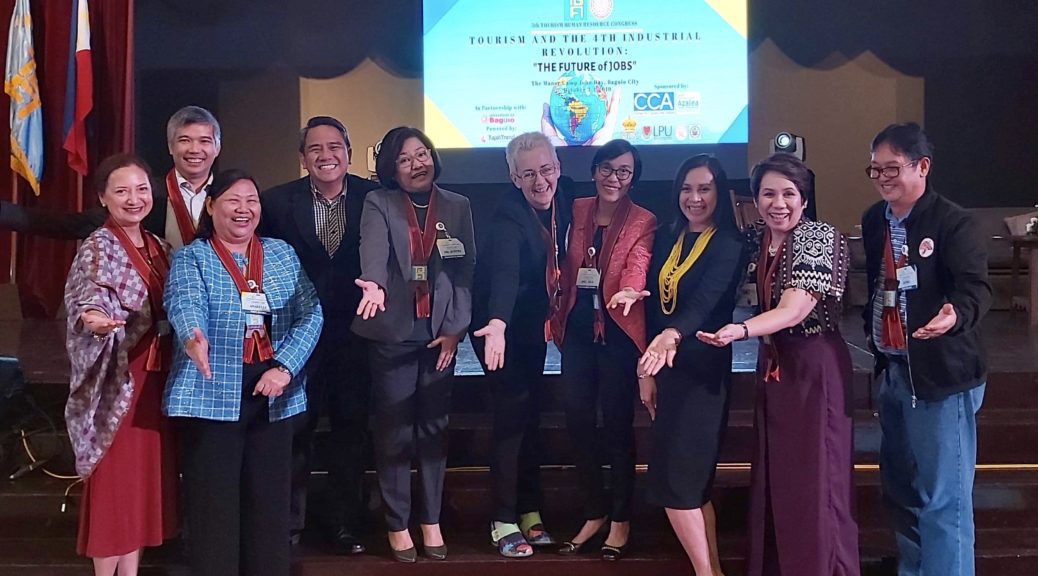(October 9, 2019, Diamond Hotel, Manila) Today, I was honored to speak at the 12th ALCUCOA Annual National Conference on the topic, “Industry and Academe Partnership: Insights into the Future of LCUs and its Graduates.” ALCUCOA is the accrediting arm of the Association of Local Colleges and Universities (ALCU).
Addressing the audience of top school officials, faculty, curriculum leaders, researchers and stakeholders from various LCUs and affiliated academic and tertiary education institutions from all over the country, was a bit daunting as it brought memories of my childhood, growing up in a family of academicians. But then, I thought, I have to share with them the perspective of industry.
So, forge ahead I did as it was a great opportunity to highlight the need for industry and academe to work together to bridge the job skills gap, and to ensure that graduates are equipped with 21st century skills to be globally competitive. Of particular importance is the need to improve English Language Skills as this is the global language for business. It is sad that currently the English Language Proficiency of Filipino graduating students is declining, and I urged the audience to do what they can to stop the decline and keep this critical competitive advantage of the Philippines.
I presented possible partnership models, like those of Amcham, Accenture, Ayala. The Information Technology and Business Process Association of the Philippines (IBPAP) has developed an extensive Industry-Academe Playbook, which IBPAP members and partner schools can use. I encouraged the audience to establish ties with IBPAP to ensure that we have skilled and industry-ready workforce.
ALCUCOA presented a post-humous award to Prof. Tomas B. Lopez, Jr., Former President, University of Makati and Former President, Association of Local Colleges and Universities (ALCU). I remember Tommy, whom I knew from AIM days, as an affable fellow who was great at communicating his ideas. From the accolades extended him, it was obvious that he was much loved.
I trust that the audience will take heart and work together with industry to address the job skills mismatch, unemployment and underemployment in the country. As DOLE Acting Undersecretary for Worker Protection, Joji Aragon said, “We need specialist workers, not technicians. We need to produce graduates who are fierce in this competitive environment, and who are trained with deep, useful skills in the growth areas.” ALCUCOA President and Executive Director, Dr. Raymundo P. Arcega, CESE acknowledged the challenge which Usec. Joji and I presented, and said ALCUCOA will take heed and collaborate with industry to ensure that graduates are job ready.

